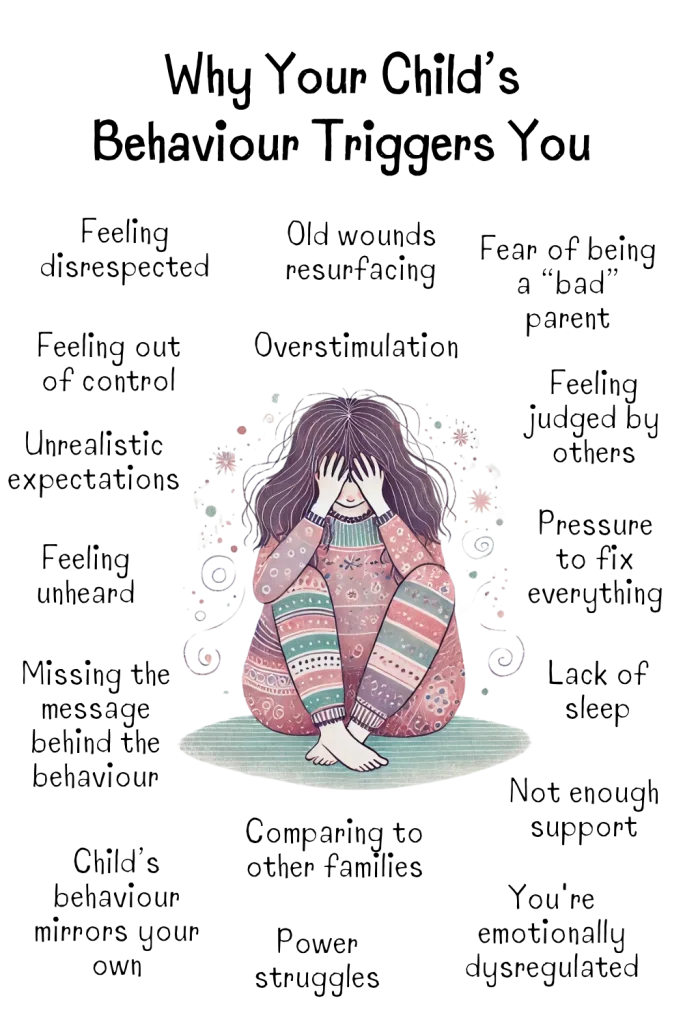We’ve all had those moments. Your child is whining, refusing to listen, shouting, throwing toys — and before you know it, something rises up in you. You react sharply, maybe more than you meant to, and then comes the wave of guilt.
It’s easy to pin it all on the behaviour in front of us. If they’d just stop doing that… I wouldn’t feel like this. But so often, what’s really happening is deeper than the spilled cereal or the defiant tone.

Parenting brings us face to face with our edges — the tired parts, the overwhelmed parts, the parts we didn’t even realise were still hurting. When a child’s behaviour triggers something in you, it’s rarely just about them.
Sometimes, you’re simply exhausted. Not just physically tired, but emotionally stretched thin. When you’re running on empty, even the smallest moment can feel like too much. It’s not that you don’t love your child — it’s just that your nervous system is already carrying more than it can hold.
Other times, their behaviour touches something personal. A tone that reminds you of being disrespected. A meltdown that mirrors the big emotions you were never allowed to express as a child. A refusal that makes you feel powerless in a way that feels far too familiar. These moments can take you right back to somewhere you didn’t expect — and didn’t consciously choose to revisit.
And then there’s the pressure — the voice that whispers you should know better, you should be able to handle this, what kind of parent are you if you can’t even stay calm? That voice is heavy. It’s wrapped in all the expectations we carry, all the beliefs about what a “good” parent is supposed to look like. And when we inevitably fall short, it stings.
It’s also important to say this: many of us are trying to parent in ways we never experienced ourselves. We’re breaking cycles, rewriting patterns, trying to give our kids what we didn’t get — and we’re doing it in real time, often while still healing from our own wounds. That’s brave work. But it’s not easy.
And here’s something else that took me a while to fully see —
Their behaviour was communication.
The meltdowns, the clinginess, the “difficult” moments — they were trying to tell me something, even if they didn’t have the words for it yet.
It wasn’t always defiance. Sometimes it was fear. Disconnection. Overwhelm. Sometimes it was a need for closeness — expressed in the only way they knew how.
And if I’m really honest, sometimes their behaviour wasn’t just about them at all — it was reflecting me.
My stress. My tension. My distraction. My disconnection.
They were responding to the energy I brought into the room, and that’s not always easy to admit.
But it’s not about blame — it’s about awareness. So we can meet those moments with more compassion.
So when your child’s behaviour lights something up in you, it’s okay to pause and ask yourself: What’s really going on for me right now? It’s not about guilt or shame — it’s about compassion. For them, yes. But also for you.
You’re not reacting this way because you’re a bad parent. You’re reacting this way because something in you needs attention. Maybe it’s rest. Maybe it’s support. Maybe it’s simply being reminded that you’re human — and you’re not alone in this.
The next time you feel yourself triggered, try to hold both truths: your child is doing the best they can with the tools they have… and so are you.
